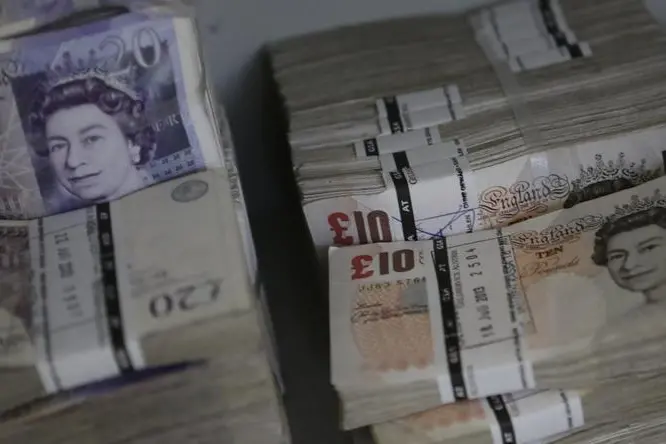PHOTO
LONDON - The pound trod water on Friday, ahead of U.S. employment data that could intensify volatility later in the day as investors figure out whether the Federal Reserve will be forced to deliver an outsized rate cut this month or not.
Sterling, which is heading for a 0.3% rise against the dollar this week, was trading 0.1% lower on the day at $1.3169. It touched a one-week high of $1.31925 earlier in the day.
The euro was up 0.1% against the pound at 84.35 pence, while the yen - a major beneficiary this week of safe-haven flows - strengthened, leaving sterling down 0.5% on the day at 187.90 yen.
Economists surveyed by Reuters expect 160,000 workers were added to U.S. nonfarm payrolls in August, after July's 114,000 increase. It was this report which ignited concern that the U.S. economy is slowing rapidly, which prompted a major selloff in risk assets in early August.
Futures show traders are pricing in as many as 100 basis points in Fed rate cuts over the remainder of this year, compared with less than 45 bps from the Bank of England . This anticipated gap has helped fuel a rally in recent weeks in sterling at the expense of the dollar.
Currency market action on Friday was firmly dictated by the dollar ahead of the payrolls numbers.
"The dollar is weak as we lead up to today’s report and it is lower vs. all other G10 FX currencies since the most recent bout of risk aversion, which did not boost the dollar as a safe haven. This suggests that when the market’s fears are centred around the weak outlook for the U.S. economy, the dollar tends to struggle," XTB research director Kathleen Brooks said.
Next week brings more UK-specific catalysts for sterling, including a monthly report on British employment that contains data on wage growth - a key focus for the Bank of England, which has expressed concern about persistent inflation in pockets of the economy, such as services and salaries.
Speculators are sitting on a fairly sizeable bullish position in sterling futures, worth $7.45 billion, according to weekly data from the U.S. markets regulator. That's only narrowly below July's record of $11.468 billion, meaning that any data that undermines the argument for the BoE to keep UK rates higher for longer could trigger a selloff in the pound.
(Reporting by Amanda Cooper; editing by Mark Heinrich)





















